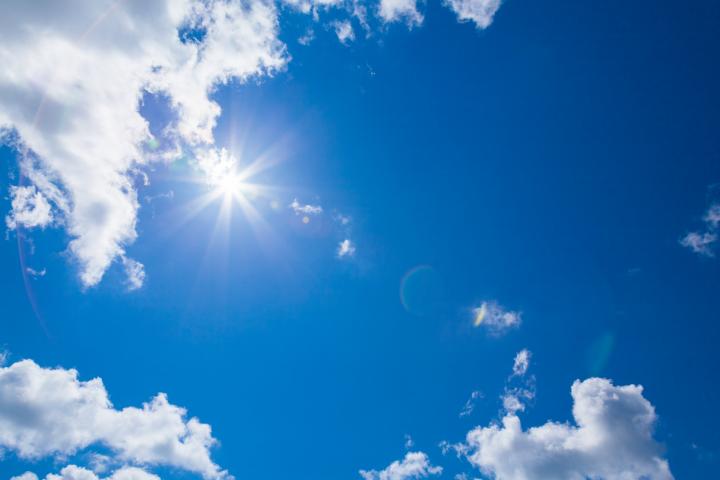A Mental Health Awareness Week in the Sun
Drop-in posts written by Dr Kitty Wheater
19th of May 2020

Dear all,
A very warm welcome to this week's drop-in.
A Mental Health Awareness Week in the Sun
If you have ever been to a doctor and complained of feeling out of sorts – struggling, a bit low, maybe very depressed – they will have asked you some variant of a particular question: ‘When did you start feeling like this?’
In some cultures, when people feel low or unhappy, healers ask something a little different. They say ‘when did you stop dancing?’
It’s a great question, because it recognises a number of things: that how we spend our time is what affords our sense of wellbeing, meaning, and purpose; that the more tired, busy, rundown, or sad we are, the more the things that nourish us tend to slide away; and, finally, that whatever happened at the beginning of our decline may hold some clues for our recovery.
For Mental Health Awareness Week, let’s take a good look at these. And what a week it is: the last of the semester and the year. It’s been a semester, and a year, in which the ordinary business of everyday University life has undergone radical transformation, while somehow continuing; the flotsam and jetsam of everyday home life has had to reinvent itself, while keeping bodies and souls together; and the peaks and troughs of life simply living itself – illness, joy, relationships, creativity, pain – have still textured our everyday experience, sometimes with little mercy.
It’s no wonder if, right now, you’re feeling pretty exhausted. As we come to the end of the semester, it’s good to give yourself some pause, to let that sink in. For some of us, our university year is over; for others, it continues; and either way, there is going to be some learning in these moments of transition.
It’s good to offer some room, or even just a corner of a room, for this. We can easily rush into the downtime, filling it up right away with plans. I don’t know about you, but I have several activity holidays in the sun booked this summer, and plans to convert my father’s garden into a dairy farm, never mind the bylaws (or my dad, for that matter).
Alternatively, everything falls away, and we emerge blearily from a week of Netflix or Facebook to a flat of dirty dishes, and work on Monday morning. We’ve all had that thought, at the end of some time off, that we should have finally aced that personal project, or cooked something with that now-mouldering exotic vegetable, while also wistfully thinking ‘it might just have been nice to take more walks.’
So, to go into whatever this transition holds for you with a good sense of where you actually are, and what you might need, put aside some time – maybe fifteen minutes – sometime this week. Ask yourself: what does my typical day look like, in this last week of term? You may find it helpful to write a list, in chronological order, of roughly what you are doing. Your calendar will give you some clues: meetings, projects, deadlines. So, too, will your to-do list.
Look carefully at the when and how long of things. Are the meetings substantial? Is your day wall-to-wall, or are things distributed with some space in-between? Do you take a lunch break, and stop for tea? Is this week just so frantic – because it’s the last of the semester, and you have small children screaming in the background, or a friend who is struggling – that there’s not a sliver of rest in your working day right now?
Notice the feeling tone of the activities on your list: you may have an overall sense of ‘urgh’, or ‘actually, feeling pretty good about this,’ depending on whether you had your last exam last week, or whether you have a pile of papers as high as your chin to mark.
That feeling tone is very helpful to clock right now. Do you burst into tears when you look at your laptop? Has your typical day become so free that it’s flopped over into unstructured boredom and anxiety? Are you, simply, exhausted?
Or maybe you are doing pretty well in this moment. The sky outside is blue with no contrails, there is milk in the fridge, and you have a Netflix date with a friend this evening. Sometimes, the feelings are mixed. We may be doing ok, if a little depleted. Notice that, too. Anything on the spectrum is ok to spot; the key thing is to note it, because then we have an opportunity to decide what to do next.
What we do next begins and ends with nourishment. Oliver Burkeman writes, ‘On a really bad day, I may spend hours stuck in angst-ridden maunderings, wondering if I need to make major changes in my life. It's usually then that I realise I've forgotten to eat lunch. One tuna sandwich later, the mood is gone. And yet, "Am I hungry?" is never my first response to feeling bad: my brain, apparently, would prefer to distress itself with reflections on the ultimate meaninglessness of human existence than to direct my body to a nearby branch of Pret A Manger.’
I love this observation, because like the phrase ‘when did you stop dancing’, it perfectly captures our need for nourishment; the painful places we go to when we are deprived; and how the moment that begins depletion can, with a drop of mindfulness, begin to remedy it.
So start small. Begin with a tuna sandwich, or a cup of tea. When you feel a little better, remember that, as our University Chaplain Harriet Harris often says, we most of us need about three times as much replenishment as we think we do. This is good news: it means that we have more to draw on than we knew. What’s even better is that they can all be small, if that’s what we can manage right now. We may not always be able to spend three weeks in the sun, but we can put on some music and dance. We can message someone who cares for us. We can look at the copper beech, glowing red. Many tiny beautiful things are something really magnificent, as many of you wrote back to me last time.
So take your fifteen-minute pause this week, to reflect on how you are right now, and what you might need as this term ends. Then, take your pick from these practices. Choose what will nourish and steady you in this moment. They are all short, around the ten minute mark, and you can tag two or three together to give yourself more time, and space, and rest.
This weekly drop-in will continue throughout the vacation. Apart from when I take leave, of course. That dairy farm isn’t going to build itself.
Warmly,
Kitty


